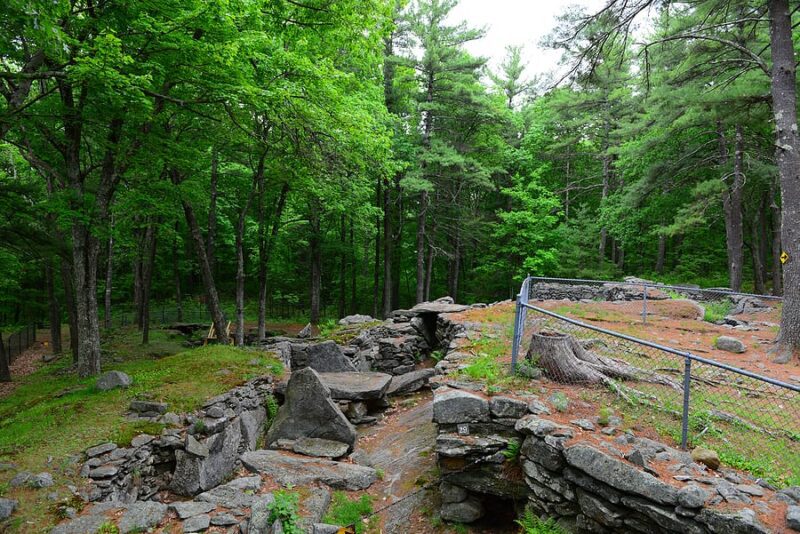SALEM, NH – A New Jersey man is in hot water this week after being tied to a year-old crime investigation into the vandalizing of America’s Stonehenge.
Swedesboro, New Jersey resident Mark Russo, the prime suspect, has been charged with one count of felony Criminal Mischief.
Salem Police Detectives arrested Russo on Monday at the Salem County Correctional Facility in Woods Town, New Jersey, where he was being held pending extradition back to New Hampshire.
“The arrest culminates an approximately 15 month-long investigation into vandalism at the site of America’s Stonehenge at 105 Haverhill Road,” said Salem Police Chief Joel Dolan. “According to a website for the attraction, America’s Stonehenge is believed to be more than 4,000 years old, and features various rock structures.”
Salem Police who responded to the scene on Sept. 29, 2019 following a report of criminal mischief came upon a rock tablet at the site that appeared to have been damaged by a power tool as well as knocked over.
An 18-inch tall wooden cross was also found suspended between two trees, and attached to the cross were several photographs and hand-drawn images.
Salem Police Detective Michael Geha led the investigation. The Salem Police Department wishes to thank the Federal Bureau of Investigation’s (FBI) Bedford, New Hampshire office and the Woolrich, New Jersey Police Department for their assistance in the investigation.
“A job well done to Detective Geha, who has determinedly and skillfully worked on this case for well over a year,” Chief Dolan said. “This is an example of fine police work, and how law enforcement agencies, wherever they may be located, can work together to resolve investigations such as this one.”
Russo was held without bail at the Rockingham County Jail and was scheduled for an arraignment on Tuesday before the Rockingham Superior Court.
America’s Stonehenge is a 30-acre archaeological site shrouded in mystery. Some believe the site was arranged by 18th and 19th century farmers, while others believe it is a hint that more primitive inhabitants worked the site, long before European settlers arrived.

